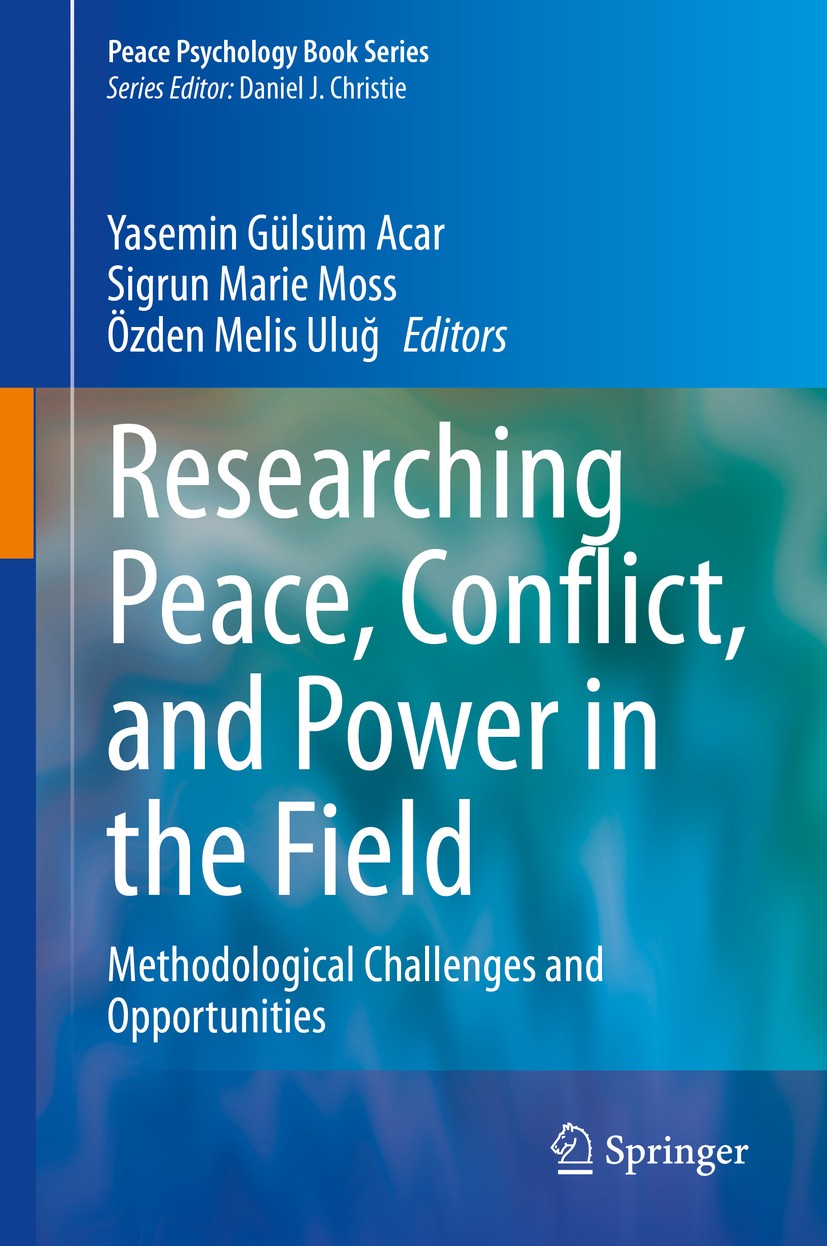| 书目名称 | Researching Peace, Conflict, and Power in the Field | | 副标题 | Methodological Chall | | 编辑 | Yasemin Gülsüm Acar,Sigrun Marie Moss,Özden Melis | | 视频video | http://file.papertrans.cn/829/828115/828115.mp4 | | 概述 | Provides an extensive account of how people do conflict research in difficult contexts.Boasts a diverse range of scholars, researched cases, and research processes.Critically evaluates what it means t | | 丛书名称 | Peace Psychology Book Series | | 图书封面 |  | | 描述 | .This edited volume offers useful resources for researchers conducting fieldwork in various global conflict contexts, bringing together a range of international voices to relay important methodological challenges and opportunities from their experiences. The book provides an extensive account of how people do conflict research in difficult contexts, critically evaluating what it means to do research in the field and what the role of the researcher is in that context..Among the topics discussed:.Conceptualizing the interpreter in field interviews in post-conflict settings.Data collection with indigenous people.Challenges to implementation of social psychological interventions.Researching children and young people’s identity and social attitudes.Insider and outsider dynamics when doing research in difficult contexts.Working with practitioners and local organizations..Researching Peace, Conflict, and Power in the Field. .is a valuable guide for students and scholars interested in conflict research, social psychologists, and peace psychologists engaged in conflict-related fieldwork.. | | 出版日期 | Book 2020 | | 关键词 | Data collection with indigenous people; Fieldwork experiences from Chile; Research with refugees of co | | 版次 | 1 | | doi | https://doi.org/10.1007/978-3-030-44113-5 | | isbn_softcover | 978-3-030-44115-9 | | isbn_ebook | 978-3-030-44113-5Series ISSN 2197-5779 Series E-ISSN 2197-5787 | | issn_series | 2197-5779 | | copyright | Springer Nature Switzerland AG 2020 |
The information of publication is updating

书目名称Researching Peace, Conflict, and Power in the Field影响因子(影响力)

书目名称Researching Peace, Conflict, and Power in the Field影响因子(影响力)学科排名

书目名称Researching Peace, Conflict, and Power in the Field网络公开度

书目名称Researching Peace, Conflict, and Power in the Field网络公开度学科排名

书目名称Researching Peace, Conflict, and Power in the Field被引频次

书目名称Researching Peace, Conflict, and Power in the Field被引频次学科排名

书目名称Researching Peace, Conflict, and Power in the Field年度引用

书目名称Researching Peace, Conflict, and Power in the Field年度引用学科排名

书目名称Researching Peace, Conflict, and Power in the Field读者反馈

书目名称Researching Peace, Conflict, and Power in the Field读者反馈学科排名

|
|
|
 |Archiver|手机版|小黑屋|
派博传思国际
( 京公网安备110108008328)
GMT+8, 2026-2-9 07:25
|Archiver|手机版|小黑屋|
派博传思国际
( 京公网安备110108008328)
GMT+8, 2026-2-9 07:25


